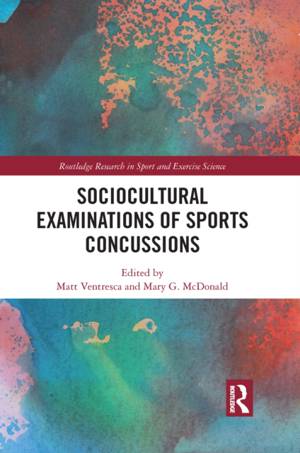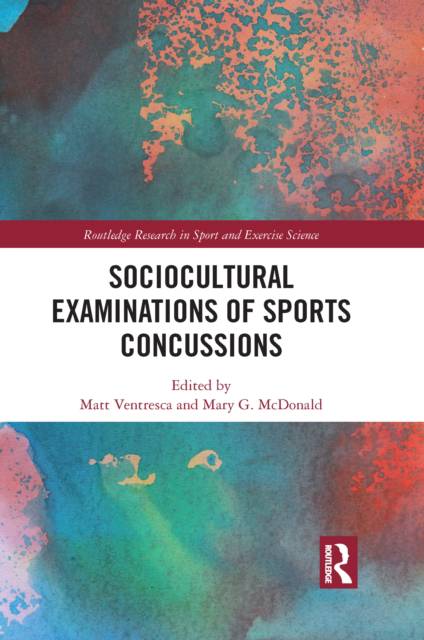
- Retrait gratuit dans votre magasin Club
- 7.000.000 titres dans notre catalogue
- Payer en toute sécurité
- Toujours un magasin près de chez vous
- Retrait gratuit dans votre magasin Club
- 7.000.0000 titres dans notre catalogue
- Payer en toute sécurité
- Toujours un magasin près de chez vous
Sociocultural Examinations of Sports Concussions
Description
Sport's "concussion crisis" has been characterized by controversial scientific discoveries, athlete suicides, and high-profile lawsuits involving professional sports leagues, while provoking widespread media coverage, changes to game rules, and debate about the future of many popular sports. Sociocultural Examinations of Sports Concussion is the first edited collection to bring together multiple sociocultural perspectives on sports concussion that interrogate the social, economic, political, and historical forces shaping the cultural impacts of these injuries.
Each of the ten chapters moves beyond biomedical or neuroscientific paradigms to critically examine a specific intersection of sociocultural factors influencing public perceptions about concussion or athlete experiences of brain injury. These include analyses of media and advertising, medical treatment and diagnostic protocols, gender and masculinity, developments in equipment and scientific models, economics and labor politics, understandings of trauma and recovery, public health philosophies, and disciplinary differences in framing the ontologies of concussion.
Drawing from a wide range of theoretical and methodological approaches, Sociocultural Examinations of Sports Concussion offers a diverse set of analyses examining brain injuries as cultural and embodied phenomena affecting more than just athletes' brains, but also embedded within and (re)shaping meanings, identities, and social contexts. It is valuable reading for graduate students and researchers interested in the experience and treatment of sports concussion, sports sociology, and sports technology.
Spécifications
Parties prenantes
- Editeur:
Contenu
- Nombre de pages :
- 208
- Langue:
- Anglais
- Collection :
Caractéristiques
- EAN:
- 9781032085326
- Date de parution :
- 30-06-21
- Format:
- Livre broché
- Format numérique:
- Trade paperback (VS)
- Dimensions :
- 152 mm x 229 mm
- Poids :
- 285 g

Les avis
Nous publions uniquement les avis qui respectent les conditions requises. Consultez nos conditions pour les avis.





